Col. Larry Wilkerson speaks about how the media’s portrayal of the U.S. invasion of Iraq barely encapsulates the damage wrought by the U.S.-led “coalition of the willing.” He also addresses recent developments in the Middle East, including Israel’s increasingly belligerent policy on Iran, how the Saudi-Iran deal might end the Saudi blockade of Yemen, and the military significance of Israel being moved from U.S. European Command to U.S. Central Command.
Talia Baroncelli
Hi, I’m Talia Barronceli, and you’re watching theAnalysis.news. I’ll shortly be joined by Col. Larry Wilkerson to speak about 20 years since the United States’ invasion of Iraq, as well as relations between Saudi Arabia, Iran, and Israel. If you enjoy this content, please don’t hesitate to go to our website, theAnalysis.news, and hit the donate button at the top right corner of the screen. You can also get onto our mailing list and go to our YouTube channel, theAnalysis-news. Please hit the subscribe button there and hit the bell. The bell ensures that you’ll be notified every time a new episode drops; that way, you won’t miss any future episodes due to the algorithm. See you in a bit with Larry.
Joining me now is Larry Wilkerson. He’s a retired Colonel who worked in the U.S. military for 31 years. He also served as Chief of Staff to Secretary of State Colin Powell between 2002 and 2005 and worked for Powell when Powell was the Chairman of the Joint Chiefs of Staff during the First Gulf War. So I’m really happy to have you back on the show, Larry.
Col. Lawrence Wilkerson
Good to be with you, Talia.
Talia Baroncelli
March 20th has marked 20 years since the United States invaded Iraq. I’d like to ask you what your thoughts are on this tragedy.
Col. Lawrence Wilkerson
I said on Alhurra, the U.S. Department of States broadcast into the Arab world the other night to the interviewer who was asking me questions in Arabic, and it was translated in my ear. He asked me a question he’d asked a lot of other people who’d come up there, and they had given him a song and dance about how Iraq is great, it’s improving, and Saddam Hussein is gone. I said, “I’ll give you one more answer. It’s a disaster. It’s a disaster.” Then I described to him why I thought it was a disaster. Millions displaced, external refugees, internally displaced people, an economy that still hasn’t recovered, massive corruption in the government, Iranians in all the militia groups that really count, and on and on and on. The oil ministries are corrupt as heck. They haven’t even gotten to the place where they should be in terms of oil production.
At the end of the interview, which went on for about 20 minutes, he actually got out of his seat and came up to me and said, “I want to thank you.” In English, he said, “I want to thank you.” I said, “Why?” He said, “Because you’re the first person that’s come on here and told the truth.”
I later said to the [inaudible 00:02:31] and Middle East broadcast network state’s replacement for Voice of America that goes into the Arab world, the reason Al Arabiya, Al Jazeera, and BBC are beating you in audience share and you only have 2% of the audience share is those people know you’re lying to them. They know you’re not telling them the truth. If you told them the truth, at least you would get a sizable piece of the audience, maybe 15-16% of the audience, and maybe grow it because they wouldn’t be hearing total propaganda. It is a disaster.
In the Levant, in large measure, is a disaster from Beirut to the other end of the Red Sea in Yemen because largely of what we did in 2003. It started in 1990-91 but finished up in 2003 in the most miserable way. I don’t see it recovering for some time now.
Let me add many of the neoconservatives who forced that war on an inexperienced president in many respects are joyful about it. They’re joyful about it because as long as it’s in turmoil, Israel is safe. They would look at you, and they would say, “Okay, Syria was a big threat. Iraq was a big threat. Iraq, possibly the biggest threat on the ground with armoured forces. Egypt had signed a peace treaty, so we got rid of the others. And Iran, well, we’re going to take care of them, too.” Maybe we’ll get to that in the other part of the interview, but that’s the way they feel. And they feel the Abraham Accords, and the recent mini-rapprochement between Tehran and Riyadh are indicative of the fact that Israel doesn’t have any enemies left. Au contraire, Israel has many enemies left and is making more. Every day, [Benjamin] Netanyahu is making more enemies, including his own people. So the region is in turmoil, and we are largely responsible for it.
Talia Baroncelli
But no one has been held accountable for it. What do you think has to be done there?
Col. Lawrence Wilkerson
No. The other day someone asked me the question, what I thought about Putin going before the ICC [International Criminal Court] were he to be captured and put there? I said, “Oh, he’s got to stand in line because George Bush and Dick Cheney ought to be in front of him.” If it takes my going along with them, if I’m the person who has to go along with them in order to get the American people to say, “Put them there,” I’ll go. I’ll go in a heartbeat. They need to be there, too. We’re the biggest hypocrites on Earth.
Talia Baroncelli
Well, that’s very honorable of you, but I don’t think the ICC will ever release any of those arrest warrants for Bush, for Cheney, for anyone.
Col. Lawrence Wilkerson
What I found out about the ICC really, really was discouraging. In Paris with the Germans, we had gone ostensibly to talk to the two French members of the Guantánamo crowd who had finally been repatriated, guilty of nothing, and sent back to France because we were working on the torture issue. Well, guess who shows up on the second day of our conference? The young female prosecutor who was running the case in Afghanistan. In the first part of her investigatory process, which is very free of prosecutorial restrictions, they can do almost anything. They can talk to anyone and so forth. They’re not bound by what they in the second phase will be bound by, which are really strict limitations on what you can ask, do, and so forth. So she told us the full story. The thing she told us about; the crimes committed by the United States, by the Afghan government, and by ISAF, the International Group in Afghanistan, which were under investigation because they were horrendous. They were absolutely horrendous. She showed us some of the evidence. She said, “Now, when I get to the second stage where I have to follow all the rules and everything and make it like a grand jury investigation, I’m going to run into problems, but I think I’ve got enough here to work it out.” Next thing I hear, about eight months later, she’s been, ‘boom’.
I heard this in 2002 from John Bolton and others in the State Department. “We own the ICC. That’s why we don’t want to appear to be an associate of it because we own it. We will prosecute Blacks in Africa. They will prosecute Blacks in Africa on our behalf. When we ever find anybody that isn’t Black, they’ll prosecute them, too.” And lo and behold, what did we come to? [Slobodan] Milošević, [Radovan] Karadžić, and all the war criminals amongst the Serbs. So I think there’s some truth to that. We do, to an extent, the ICC does do what we tell them to do, and that’s the latest example. You’re not going to bring a case against the empire.
Talia Baroncelli
Well, some of the first cases that were launched by the ICC or in the first arrest warrants they released were against Africans, right? So it wasn’t really a good look.
Col. Lawrence Wilkerson
Of course, you can do that. That’s fine. Go over there and do that. Do you know what we did in 2002? We sent John Bolton around the world. John Bolton is the Under Secretary of State for International Security Affairs and negotiated what we call; I think the term was Article 92. I think that was it; that’s unimportant– agreements with each nation he went to. Those agreements said, “In treaty force between the United States and the capital of that country, we will not prosecute your troops if they ever should be on our soil.” So we got a get-out-of-jail-free card with half the countries of the world. Of course, we bent some arms and paid some money to get those agreements.
Talia Baroncelli
Well, speaking of John Bolton, I recently saw an interview with him on Al Jazeera, where he was basically defending the U.S.’s position before the war in Iraq and saying after the first Gulf War, there was no evidence that Saddam had actually gotten rid of all the weapons they had. So that would be some reason to justify an invasion because there was no proof that those weapons had been destroyed. Obviously, what the UN inspector said in 2003 was quite different, wasn’t it?
Col. Lawrence Wilkerson
Well, I’ll tell you, Hans Blix [Former Minister for Foreign Affairs of Sweden] was not convinced that there were no weapons. In his conversations with Powell, he said, “Put me there, and I will tell you there are no weapons with 95% certitude. And if there are weapons, I’ll give you that.” John Bolton is forgetting the fact that Bill Clinton bombed Iraq with not iron bombs, as we did mostly in the first Gulf War, with PGMs [Precision-guided munition] for four days and nights. That did more damage to Iraq than all of the first Gulf War. Remember, the first Gulf War was mostly fought on the Kuwaiti border and the Iraqi border. It wasn’t fought– the highway of death was turned off really quickly. So we didn’t drop a whole lot on Baghdad or Iraq proper. But what Bill Clinton dropped for four days and nights in his operation virtually destroyed Iraq’s infrastructure. Anybody who probably thought there were weapons of mass destruction of consequence had to think that they were hidden and were well away. And that’s, of course, what the CIA told us. That was the story they gave us.
The real destruction of what was, before 1990, the most successful country outside Israel in the Levant, Iraq– people forget that. Women had rights. Women could go to university. It was really a modernizing country. It had Saddam Hussein, which was a shortfall, no doubt, but it still was a modernizing country. It had a great economy for the Middle East. We set that back. It hasn’t recovered since, and it probably won’t for another two decades.
Talia Baroncelli
It just reminds me of a New York Times article recently. I think the headline was something like, Iraq is Freer Now Compared to Before the Invasion, but of course, the tragedy is horrible. That seems to be another justification for the war. I mean, what is freedom? It’s all relative, right?
Col. Lawrence Wilkerson
Exactly.
Talia Baroncelli
The destruction that was brought on the Iraqi people during the invasion is definitely not something that can be justifiable.
Col. Lawrence Wilkerson
Was that the article by Duncan?
Talia Baroncelli
I can’t remember. I think it was probably published on March 21st, so a day after.
Col. Lawrence Wilkerson
Yeah, New York Times.
Talia Baroncelli
Yeah.
Col. Lawrence Wilkerson
What a preposterous article. Absolutely. I got a request from Ralph Nader [American Activist] to write a letter to the editor of the New York Times. I haven’t gotten back to Ralph yet, but I’m going to tell him I don’t talk to the New York Times anymore. They’re heathens.
Talia Baroncelli
What do you think of the media’s portrayal of the U.S. invasion? Because you do see a lot of images of death and destruction. You do see how terrible the invasion was, but does that really portray the extent of it?
Col. Lawrence Wilkerson
Not really. You have to look at the ravage that happened afterwards. That was brief, episodic, and violent, but over in a very short period of time. The statute came down, and then the looting started, and we had a three-star General stand there and said, “Well, it’s not my job to stop the looting.” Are you kidding me, General? You just brought this state to its knees, and you’re not prepared to do anything post hostilities? And then it started. Secretary of Defense, [Donald H.] Rumsfeld, would not admit that there was an insurgency going on. Well, it was a hell of an insurgency because we had sent almost all the Republican Guard out into the hinterland with their weapons and angry as hell. They formed the ranks they did, and they began an insurgency. Al-Qaeda joined them, of course, under Ayman Mohammed Rabie al-Zawahiri in the beginning. It became a really deadly place to be, not just for Americans, but for Iraqis too, and for Brits and others in the coalition of the willing, as Rumsfeld called it.
Talia Baroncelli
What would you say about the so-called efforts, probably during the war and after the war, to account for the public spending that went either to profits for different military companies that were there or defense contractors? I think Paul Bremer [Former Executive Secretary to the Department of State of the United States] was involved in some of that, right?
Col. Lawrence Wilkerson
Yes, very much so. Paul Bremer was a pro-consul who didn’t know what the hell he was doing. Just the fact that we put someone there as inexperienced as he was in that activity and didn’t speak Arabic. One of his first acts was to push the most accomplished diplomat in the world, who had come there of his own volition, UN-sponsored Sérgio Vieira de Mello, who had been in all the world’s dangerous spots and had been fearless and courageous in all of them and accomplished miracles, Bremer pushes him off into a hotel and won’t even talk to him hardly. Al-Qaeda attacks it—another shortfall of our military effort. We provided no quick reaction force for such things as if al-Qaeda wouldn’t do something like that. He dies in the rubble of that hotel on his cell phone, and his last words are asking if everyone’s gotten out. He’s thinking about the people that were working for him in the hotel, and he’s killed. We lost a true patriot there, a world patriot, a global patriot, a Brazilian citizen, but a brilliant man. We lost him there, and we gained Paul Bremer, an idiot.
Talia Baroncelli
Well, let’s stay in the Middle East but move to Saudi Arabia and Iran. They recently signed a deal to reestablish diplomatic ties, and that was, of course, assisted or negotiated by China. How do you think this new deal will affect politics in the region?
Col. Lawrence Wilkerson
First of all, it’s my good information, and it comes not only from U.S. sources but from Omani sources. Let me just highlight that because Oman has the best set of good offices in the world, certainly in the Levant, but I think in the world. They are constantly working for peace in very divisive issues all across the region. I must say, too, sometimes globally. So they had a hand in this. They had a hand in the JCPOA, the nuclear agreement with Iran. They helped expedite that. Bill Burns had a hand in it. Bill Burns [Director of the Central Intelligence Agency] had been working with the Iranians and the Saudis for some time. So Wang Yi [Former Foreign Minister of the People’s Republic of China] comes along and gets the credit. I’m not trying to shorten or trying to discredit Wang Yi; he’s a superb diplomat. He came along and took an opportunity that was created by pre-work by the Omanis, by Burns, and also by the women in Iran who made the Iranian government really scared and doubt its own legitimacy. And well, it should have because those women, the men who joined them, the clerics who joined them, and all manner of Iranians who joined them discredited that government. That government is true in terms of legitimacy with its own people. Eighty-eight million people disavowed that government. It’s just a matter of time till something happens that will probably be the IRGC [Islamic Revolutionary Guard Corps] establishing a military dictatorship, I’m sad to say. But that made the Iranian government much more willing to talk and to seal the deal, if you will, because they were seeking someone, anyone who would legitimize them. They lost legitimacy with their own people. So now they’re seeking outside legitimacy.
Let me hasten to add that the agreement is nothing more than both sides agreeing to recognize UN principles and protocols with regard to respect for other countries. That’s all they did. So there’s nothing there, really, of substance yet. So anyone who thinks that that is a reconciliation between Riyadh and Tehran better look again. It could blow up at any moment. In fact, the Saudis under MBS [Mohammed bin Salman Al Saud] could put a Shia, put him on the gallows and hang him as they did a few years ago, and the Iranians would be right back to shooting missiles at them. MBS would do that in a heartbeat; that’s the kind of ruler he is.
I’m a little bit more optimistic about it because they did do that, though. The Abraham Accords are there. I think all of this, though, is machinations by the Arabs, and I don’t blame them for it. I’m just trying to describe it. To put themselves in a position to do major maximum damage to Israel when the time is ripe. I put Egypt in that camp, too, even though they’ve signed a peace treaty. The United States is getting a little tired of bribing Egypt every year with three to four billion dollars to keep the peace treaty. There’s got to be some distrust there, and there’s got to be some planning on the side for contingencies. So I don’t ever discount the situation of animosity between the Arabs and Israel over the Palestinians at a minimum, but over other things, too, like Israel getting all this discounted oil constantly. It started with Marc Rich. Marc Rich, the man Bill Clinton in the last hour of his presidency in an ignominious, cowardly move, pardoned. I mean, Marc Rich was running the busting of Iraqi sanctions to ship oil to Israel. He was going to Haifa at discounted prices. Marc Rich is as much responsible for the Israeli economic success in the last 20 years as Netanyahu or anyone else. Marc Rich went to jail, and then Clinton pardoned him.
Guess who earned $4 million as a lawyer working for Mark Rich? Scooter Libby, Dick Cheney’s Chief of Staff. Man, this is a convoluted story. These people are all in it together. Everywhere you look is Israel. In the middle of it all is Israel. If you’re looking at the Levant, you have to look at Israel because they’re behind a lot of Lebanon’s problems and a lot of Syria’s problems.
Speaking of Syria, look at what we just did. In a country to which we were not invited, in a country which has a recognized legitimate leader, Bashar al-Assad, however we may think of him, in a country we are illegally occupying a portion of, in a country where our troops are around oil that’s pumping to Israel, in a country we have no business being in. It’s an international crime to be there. We flew jets and shot at people. This is crazy.
Talia Baroncelli
To give some context to people who don’t know what’s going on, I believe that– well, the Pentagon has said that Iranian-backed groups or affiliates have launched drone attacks in Northeast Syria and Biden, in retaliation, launched another precision attack on these groups in Syria. Of course, the–
Col. Lawrence Wilkerson
The question is, would they have done that if we weren’t there? No.
Talia Baroncelli
Exactly. That begs the question, why are these troops there in the first place on the sovereign territory of Syria?
Col. Lawrence Wilkerson
Exactly. The most important reason they’re there is to protect the flow of oil to Israel. I’ll bet you my last penny that Bashar al-Assad did not know that oil was going to Israel and would like it to stop.
Talia Baroncelli
Well, I have a lot to ask you because we’ve covered a lot of different things now. If we can go back to the Saud-Iran deal, what was Iraq’s role? Because I think some of those discussions did take place in Baghdad. I just wonder, Iraq neighboring Iran, what was their role in any of those talks?
Col. Lawrence Wilkerson
I think Iraq wants two things out of Iran. It doesn’t want it to leave because it’s very important for its economy. There are things, especially around the region that Basra is the center of, there are things the Iranians do that constitute a major portion of Iraq’s economy to a certain extent, and vice versa. So they need that—any country, you want to trade with your neighbors, if possible. I mean, look where most of our trade is, Mexico and Canada. Most Americans don’t even know that, but that’s the truth.
Iraq wants good relations, economic and financial relations, but they don’t want relations with 100,000 members of militias inside their own borders that are influenced by Iran and some of them in a very deleterious way. They’re injurious to Iraq. They want those gone. So they want a deal. They want to talk.
Why was [Qasem] Soleimani killed in Iraq? Well, one of the reasons he was there was to honcho some talks between these people. It wasn’t just all bloodthirsty stuff. He was there to try and work out some deals where the motives of India would be a little bit better. Not to say that there wasn’t some ulterior motive there, too, that was more military, but that’s what Iraq wants. That’s what the government now wants. The government now is a little bit better. It’s not [inaudible 00:21:47] killing and hanging Sunnis. It really is interested in the reconciliation of the different groups in Iraq. It’s interested in getting the Iranian militias out, and it’s interested in limiting some of the corruption. They’ll never wipe it all out. It’s endemic to that society. But they want to get it in hand so that they can deliver to their people so they’ll get reelected; that’s the way it’s supposed to work.
There’s a little bit more optimism now about Iraq’s future than there was, say, a year or two ago when they were having so many political problems. But that said, Iran has got to become a better, more responsible partner if that’s to happen and quit coveting Iraq.
Talia Baroncelli
Would that mean that they would need to stop sending weapons to some of the groups that are in Iraq?
Col. Lawrence Wilkerson
Yeah. Every time I say that, I go hypocrite, hypocrite, hypocrite, because who’s the biggest arms merchant in the world? The United States of America. Who’s the biggest arms merchant single in the world? Lockheed Martin.
Talia Baroncelli
Well, Saudi Arabia also is still involved in a war in Yemen. I wonder how this deal with Iran might impact the war in Yemen. I mean, you’ve said that you’re not very optimistic that this deal with Saudi Arabia and Iran is much more than some declaration that it might not lead to anything.
Col. Lawrence Wilkerson
Might be one place that you just mentioned, Yemen, where it is very positive and quicker rather than later because Oman was very much interested in that. I’m sure the Sultan and his boys made that a major issue because they want to see that brutal war stopped, and they want the Saudis to get out of it and quit killing people and quit making it so difficult for Yemenis to even exist, let alone prosper. So I could see that as being the number one reason they offered their good offices and therefore being a possible accomplishment. The Saudis are trying to get out, but they want to maintain some sort of– oh, man. Remember, he was a Defense Minister when he did this. This is all MBS. This is his whole ball game. So he’s got to save face, which means that the Houthis have to give a little as he gives, hopefully. I hope the food is restored. I hope the ports are restored. It looks like they’re going to be. So this could be a really positive and rather swift development of this rapprochement if you will, that we get the war in Yemen ended.
The Congress is getting ready again to try the War Powers Resolution and cut Saudi Arabia off from U.S. help altogether. So that’s putting a little pressure on MBS, too. I hope that’s enough to get this war stopped.
Talia Baroncelli
What does MBS actually gain from this blockade of Yemen, though? Just from a sheer geopolitical perspective in terms of Saudi Arabia’s interests.
Col. Lawrence Wilkerson
It’s become a stature thing for him, and that’s the worst thing you can do to a war is make it stature and prestige for the leader of the main effort in that war because then you can never get them to stop. But originally, I think it had to do with a number of things, one of which was the Saudi Arabian desire to build a pipeline across that portion of Yemen to the Red Sea and therefore negate, to an extent, the strategic importance of the Persian Gulf and the Strait of Hormuz. But they couldn’t do it because they wouldn’t let them. So there are all kinds of geostrategic reasons that Saudi Arabia wanted to do what it did, and it ran into a bust when it did it. People generally don’t, no matter how weak they are, they generally don’t like you crossing their border and killing them to make your point.
Talia Baroncelli
Well, you pointed out recently that there’s a national security document which was also approved by President Joe Biden, which essentially moves Israel from U.S. European Command to U.S. Central Command in the Middle East. What does that mean for military operations in the Middle East? What are the implications there?
Col. Lawrence Wilkerson
It means that we’ve changed 50 years of U.S. policy, which was rather adamant. Never put Israel in Central Command’s area of responsibility because it would be all Arabs with Israel. Now, you could say, well, this was made possible by the Abraham Accords. Okay, everybody’s becoming friendly with Israel now, so we can put Israel in that command. Well, what would you put them in there for? Who are you going to attack? Who are you going to fight? What’s the war going to be? It’s going to be Israel and the Arabs versus Iran. That’s another motivator for Iran to do what it did because Iran is not stupid. It can see that happening. It knows we changed the UCP.
More dire than that, though, is when I saw that change, a change Colin Powell had fought against, a change George Marshall had started to fight against in 1947 and ’48. When I saw that change, I said, okay, three possibilities here. Israel is going to attack Iran, and we’re going to follow. We’re going to attack Iran, and Israel is going to follow, or we’re going to attack Iran together. That’s why we’ve consolidated and put Israel in the command that’s going to be in charge of the war. That’s the most dire interpretation of it. I’m really worried that that might be the accurate interpretation of it. I think Netanyahu has thrown a monkey wrench in that recently, though, because he no longer seems in control of Israel. He’s certainly not in control of those 100,000 or so people who come out in the streets almost daily. I’m not even sure he’s in control of his own government. So that may put a little fly in the ointment there in terms of those plans.
Talia Baroncelli
Well, it does seem like the U.S. has been supporting Bibi Netanyahu’s very aggressive policy toward Iran. I mean, Tom Nides, the Ambassador, was making some comments saying that Israel can basically do whatever they want to defend themselves when it comes to Iran. But I think recently, an Israeli ambassador was recalled to New York, I think it was, to speak about some of the activity in the occupied territories dealing with illegal settlements. I do wonder what’s going on right now between the U.S. and Israel and how tricky things are, or if that’s just something that’s a media portrayal and everything is actually okay under the surface.
Col. Lawrence Wilkerson
Well, when Sheldon Adelson’s wife, Miriam, came out and criticized Netanyahu, that was a barn burner for me to see her come out. She was, I’m told, I don’t know her personally, but I’m told she was even more hardass than Sheldon himself with regard to Israel, right or wrong, Israel. For her to come out and criticize Netanyahu says something, I think. There is a real falling away right now of Jewish Americans of note with wealth from Netanyahu. Whether that translates into falling away from Israel proper is another matter. I think it depends on how long he stays there and if he’s successful in dismantling the Israeli legal system, which is what he’s trying to do.
Why is he trying to do it? They all know why he’s doing it. He’s doing it to keep himself out of jail, and his wife, too, out of jail. That’s why he’s doing it. It has nothing to do with Israel’s security and everything to do with Bibi’s security. So this is really causing some rancor amongst American Jews who are otherwise supporters of Israel. If that keeps up, Biden is not going to be able to ignore it.
Talia Baroncelli
What do you think Biden is thinking right now? Does he feel uncomfortable, given the situation in Israel? I mean, people have been protesting on the streets. Lloyd Austin, when he went to visit Netanyahu, I think he had to have a discussion with him in the airport because there were so many people protesting that they blocked the roads to the airport. Obviously, the Israeli Knesset just– well, maybe Netanyahu has made it possible for the Israeli Knesset to overturn Supreme Court rulings if they have a 61-seat majority. So he’s basically undermining Israeli democracy. How long do you think he’s going to last doing this?
Col. Lawrence Wilkerson
And what you just said, he’s doing with a paper-thin majority, a paper-thin one. So it’s not the bulk of the Israeli people who are behind these efforts. In fact, I think we’re seeing that the bulk of the Israeli people is against these efforts. If he succeeds, if he proceeds, if he goes ahead, if he does it, we’re in trouble because all Biden can do is either hold his nose, close his eyes, put his fingers in his ears and say, Israel, right or wrong, and go right into Armageddon, or take some action. I don’t see Biden being smart enough or brave enough to take action, primarily because he’s afraid of the 2024 elections and what it might do to him.
My students used to look at all these case studies since World War II, which we would use as examples of the empire in the world, all the way from Korea to the present day. They would ask me questions like this, “Are we the only country in the world that makes national security decisions based on democratic and republican political considerations?” I would say, “What do you think?” I think we are because we do, from time to time, make decisions that are based almost expressly on security and foreign policy decisions and our political situation in this country. Then the critic of that would say, “Well, that’s what democracies do.” And then you say, “That’s what democracies do who want to commit suicide.”
Talia Baroncelli
Well, speaking about nuclear winter and committing suicide, I do wonder if the Israelis really believe that Iran poses a threat to them or if it’s all just a discursive tool that they can use to pursue certain policies. When I say that, I mean, with regards to the fact that they have nuclear weapons, but they’re constantly going on about Iranians, the enrichment of uranium, how it’s reached 84% or something in the [inaudible 00:32:33] facility, I believe it was called. If Israel has nuclear weapons capabilities, why would they be worried about Iran? Because just according to that logic, which is, I guess you could criticize mutual deterrence theory, but according to mutual deterrence theory, if Iran were to launch an attack against Israel, then they’d be wiped out by Israel by virtue of Israel launching an attack right back at them. So do you think they’re really worried about Iran?
Col. Lawrence Wilkerson
You’re right. In a purely rational sense, you are right that Tehran would disappear. It’d be no more capital of Iran and lots of other places, too, from [inaudible 00:33:11] to Bandar Abbas. They have somewhere between 200 and 300 weapons. There’s no doubt in my mind that they would use them, particularly if Iran used one on them first or if they even thought one was coming in on them. We’d have our first example of launch on warning, and it would come from Jerusalem. But it’s not about that. It’s not about logic. It’s not about rationality. It’s about Netanyahu’s political needs. He has to have a bugbear. He has to have a threat, much the same way we have to have China as a threat now, and Russia thrown in for good luck, well, for bad luck. You’ve got to have an enemy. You’ve got to have an enemy to bait, an enemy to justify your defence budget, and an enemy to justify your hegemony. You have to have one. And so he’s got one now, and he’s not going to turn loose of it, regardless of the irrationality of that enemy.
The second point is, and this is a bigger geopolitical point, you either come down on the side of the proliferation of nuclear weapons or on the side of non-proliferation. So let’s just take an example with North Korea. South Korea is now talking; its new president is now talking about having his own nuclear weapons capability. I don’t think he’s serious because you ask him two really important questions. Where are you going to put your waste, and where are you going to test? There is no Korean province that is going to give him the right to do that, I guarantee you. And so maybe he’s just doing this for political pressure on Washington to make us put more nuclear weapons or put our nuclear weapons back on the Peninsula.
But still, if he were to develop one, if I’m wrong and he were to develop one, Japan would go nuclear right away, immediately. Japan’s plutonium is weapons-grade now. Korea would have to establish a reprocessing capability. Japan has the best plutonium in the world. Everyone wants to buy Japan’s P-plutonium. France buys it for its reactors. Japan would be full-up nuclear overnight. Then you have two more nuclear powers in Northeast Asia. China would then build out completely. They’d go to 6,000-7,000 warheads. So that’s proliferation.
Now, let’s go back to the Levant. Iran gets a nuclear weapon. The Pakistanis have already, I guarantee you, in the A.Q. Khan network that we sort of broke up back in the early 2000s– father of the Pakistani nuclear weapon, A.Q. Khan. In that network, the North Koreans and the Iranians colluded. We know that for a fact. They colluded over missile warheads, nose cones, missile throw weights, and underground operations. Now, the Iranians already have sufficient and enriched uranium to make a bomb. I found that out yesterday. I did not know that until I talked to the nuclear physicist I most trust. It would be a dirty one. It wouldn’t be as efficient as it should be if you really wanted maximum efficiency. But they could take the 66% to 70% uranium enrichment they have right now, and they could make a bomb.
Do they want to go further? Probably. But if they did and the Israelis announced it and weren’t able to stop it, let’s say the Iranians even went ahead as the North Koreans did. They’ve been taught. They’ve got the mountains in the Zagros Mountains. They can go deep underground just like the North Koreans did. When the North Koreans exploded their first nuclear device, we didn’t know for sure if it was a nuclear device. Our sniffers in the air could detect no radiation. The seismic people, I think they’re in Geneva, that monitored the Earth for earthquakes and so forth, said, “Yeah, something happened there, but it could have been a small earthquake. It might not have been a small nuclear weapon.” So for the first test, we didn’t know. We really did not know whether they tested or not. The second one, we got a little sniff, and we knew that they had tested a nuclear weapon. It was a little bit of a bigger yield. The Iranians would do the same thing. They’d go underground.
My point is, when they did do something that was announceable and the media would pick up on it and run it all over the place, then Saudi Arabia would say to Pakistan, “our contract for 30 weapons, execute it.” Saudi Arabia would have nuclear weapons overnight. I guarantee you they would have nuclear weapons overnight. Anyone with that much money, they’d drop it on an [inaudible 00:37:59], and they’d buy the nuclear weapons. So then you got two new nuclear powers in the Gulf, plus Israel. Guess what would happen with other countries like Syria, maybe, that would say, “Well, I need a nuclear capability, too, and I just don’t want to start that race.”
Talia Baroncelli
So you think that a nuclear arms race in the Middle East is alive and well?
Col. Lawrence Wilkerson
It could be, especially if the IRGC, which I’m told is the authority now, not the [inaudible 00:38:30], the IRGC, if they decide that they’re going to make a run for a bomb, we’re going to have a nuclear weapon in Iran, I should say.
Talia Baroncelli
Well, given the breakdown and talks between the U.S., Europe, and Iran on the Iran nuclear deal, the JCPOA, do you think there’s any chance that the U.S. will rejoin the deal and that the Iranians will agree to certain conditions? I mean, the Iranians have been upholding most of their part of the deal, except for the fact that they’ve continued to enrich. But it wasn’t the Iranians who pulled out of the deal. It was actually the Americans under Trump.
Col. Lawrence Wilkerson
We abrogated it. We violated international law. We’re the empire. We can do that. We’re also the biggest hypocrite on the face of the Earth. Trump violated international law when he violated that agreement. I don’t care whether the Senate approved it or not as a formal treaty. He violated it. Those agreements have international force. So he did that.
I’m told right now, very disappointingly, very sadly, about 48 hours ago, that the President of the United States is in a position where he feels politically it will hurt him if he were to try to close a deal. Not that he could, but let’s just say he could, possibly, that he doesn’t want to now. I can understand that from a political point of view. These women have just done what they’ve done. Many of them have been killed, injured, or jailed. Children have been killed, injured, or jailed. What would he look like to the American people, who are dumber than shit anyway, pardon my French? What would he look like if he’s running for president and he’s the guy that went ahead after all these women did, all they did and didn’t succeed, and made an agreement with their government against which they were protesting? That the political environment, in other words, is militating against Biden even wanting a deal now. I was very, very saddened to hear that, but I heard it from a fairly reliable source.
Talia Baroncelli
Do you think he still had intentions to assist the signing or the rejoining of the U.S. into the deal before the protests started in Iran? Because it seemed like he wasn’t really interested compared to the campaign promises that he had made before.
Col. Lawrence Wilkerson
I agree. It didn’t seem like either side was really interested in it. Us because we were insisting on including things that we knew the Iranians wouldn’t include. Them because they insisted on relieving the designation of the IRGC as a terrorist group because I knew we weren’t going to back off on that. Maybe we could sign a deal that would say we’d back off of it in six months or a year if they were complying with the deal. But I don’t think we could sign one that said, “Okay, we give you a concession. We’ll take them off the terrorist list and now sign the agreement.” So those kinds of things were holding it up. It didn’t seem to me, the reports I was getting, it didn’t seem to me like either side was really seriously interested in resuming it. Both sides seem to have reservations. I don’t blame the Iranians. After all, [Ron] DeSantis could come in, they could sign up, start again. DeSantis could come in two years and negate it again. I wouldn’t sign a deal with the United States if I were any country in the world.
Talia Baroncelli
Right. And in my view, at least, it’s because the U.S. backed out of the deal when [Ebrahim] Raisi came to power. I don’t think Raisi would have come to power in Iran if the U.S. had actually upheld their part of the agreement because a lot of people, especially the hardliners in Iran, were saying, “Well, look, why should we trust the Americans anyway?”
Col. Lawrence Wilkerson
Exactly. I think lots of other governments around the world are saying that thing, too. Why would I ever want to sign an agreement with Washington? Look at what they did.
Talia Baroncelli
The hypocrisy, especially in light of the 20-year mark of the invasion of Iraq, is just unbelievable. To bring it full circle and go back to Iraq and the U.S.’s invasion, what lessons do you think still need to be learned by the U.S.?
Col. Lawrence Wilkerson
I really try to shy away from the term lessons learned because, as a military officer, I always taught my war gamers and simulators you gain insights. You don’t learn lessons because lessons learned are I know two plus two equals four, and in the future, it will always equal four. That’s a lesson learned. There are no things like that in geopolitics. You get insights. Mostly you get insights into people, the way people interact, and the way countries perform through those people. I think the insights we’ve gotten is, one, we’re incompetent. We are utterly incompetent, militarily and security-wise in general. So why embark on programs, actions, and policies that display that incompetence and weaken us even further?
What do I mean by that? Well, take Afghanistan, for example. Had we gone into Afghanistan, spent six months bashing the Taliban about the ears, getting as much of al-Qaeda as we could, and then come to Kabul and said, “It’s all yours now, we’re leaving. If you let them back, we’ll come back and bash you again.” Not try to do nation-building, democracy spreading. The Afghans don’t want what we were offering them, and neither do the Iraqis. They’ve got their own version of what they’re going to create in Iraq. I listened to it the other day, and I thought it was pretty reasonable. So that’s the first thing.
The second thing is, the second insight gained is we treat our allies like dog shit. Pardon my French again, but we do. We treat our allies– this command down in Tampa called U.S. Central Command. Do you know what they are calling themselves? They’re calling themselves a coalition because they have 32 nations down there from Albania to Japan to Italy, and they’re all staff members down there. Well, let me tell you what I heard the last time I went to Tampa from one of those members whose name and country I won’t mention. We’re never told anything. We’re kept in the corner and fed dirt because that’s the way the United States operates. We’re just down there for a patina of internationalism, a patina of cooperation. Central Command does what Central Command wants to do, and so does Special Operations Command, which is right there in Tampa, too.
This is a facade of international cooperation. But at the same time, it’s an indicator of how we operate now. We need to really use friends and allies, not abuse them, use them, not in a pejorative way, but in a way that emphasizes their strengths because some of them have some real talent, whereas we don’t. The Norwegians come to mind immediately. What did we do with the Norwegians in Libya? We let them lead the airstrikes. Are you kidding me? We’re trying to corrupt Norway. We let their young pilots because they were so eager to get out there and be top guns; we let them lead the airstrikes in Libya, a war crime. We let them do that and corrupted Norway in that sense, in my view. A lot of Norwegians feel that way too. Not their government right now, but a lot of Norwegians feel that way. Use your allies well. Use them for their competencies. If you’re going to have them, use them. Don’t abuse them.
Then the third insight, I would say, is don’t deal with countries in a significant way about which you are totally and utterly ignorant. Don’t, for example, try to make Thomas Jefferson Democrats of them. They probably have their own way of doing things, and inevitably, they will do whatever they need to do better than you. I think the women of Iran just proved that. The most effective force in Iran right now. They will eventually get their way if a bunch of men corrupt as hell don’t stop them.
Talia Baroncelli
Well, Larry Wilkerson, it was great to have you on the show again. Thank you very much for making time.
Col. Lawrence Wilkerson
Thanks for having me.
Talia Baroncelli
Thank you for watching theAnalysis.news. Please go to our YouTube channel, theAnalysis-news and subscribe to the channel. Hit the like button on all the videos you’d like to watch and hit the bell; that way, you’ll be informed of future content. If you don’t hit the bell, you might be missing some of the episodes once they drop, so please do that. If you’re so inclined, also go to our website, theAnalysis.news, and hit the donate button; that way, you can support the work we’re doing. Thank you very much.
Podcast: Play in new window | Download | Embed
Subscribe Apple Podcasts | Spotify | Android | iHeartRadio | Blubrry | TuneIn | Deezer | RSS
Never miss another story
Subscribe to theAnalysis.news – Newsletter
“Lawrence B. Wilkerson is a retired United States Army Colonel and former chief of staff to United States Secretary of State Colin Powell.”

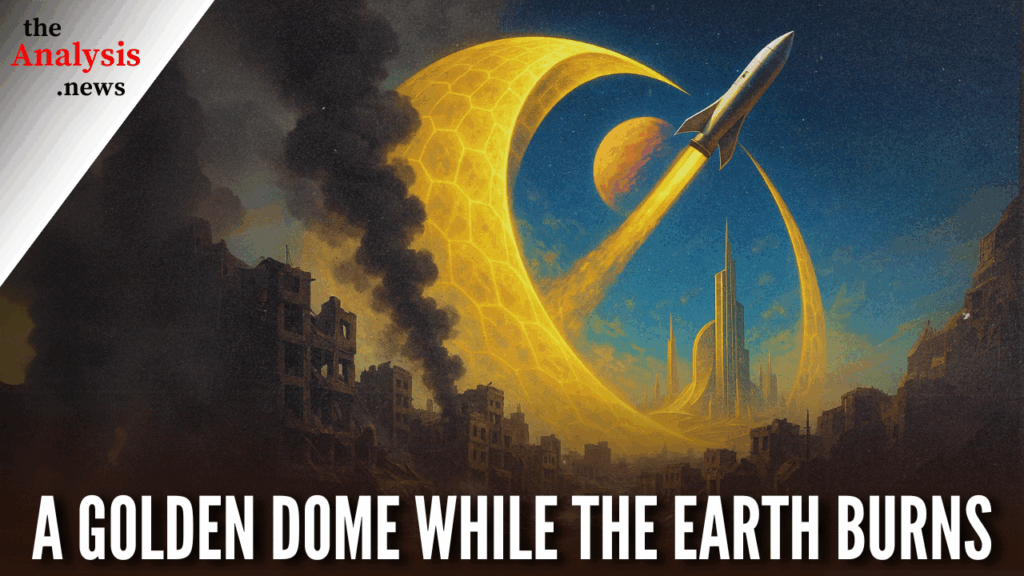
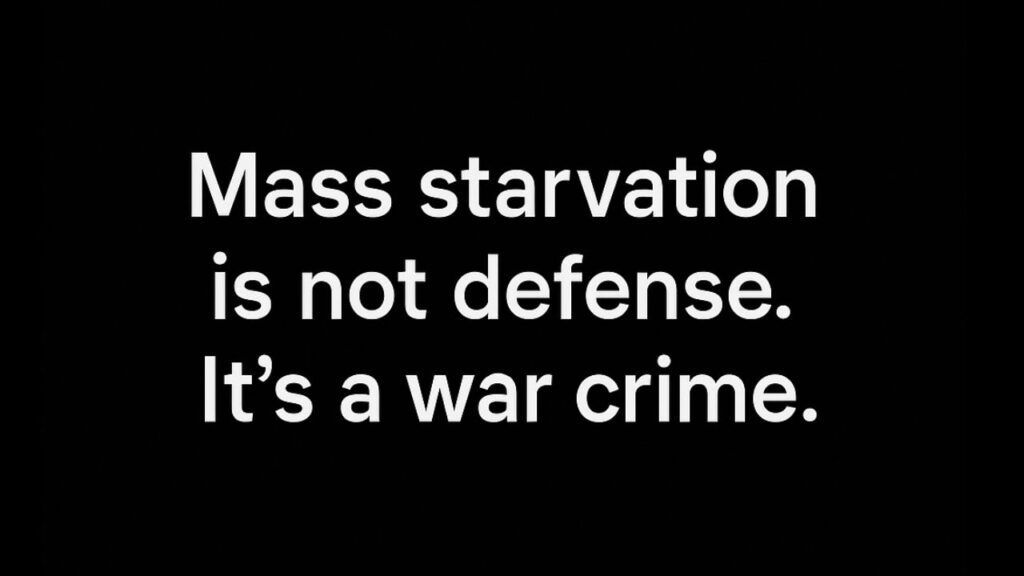
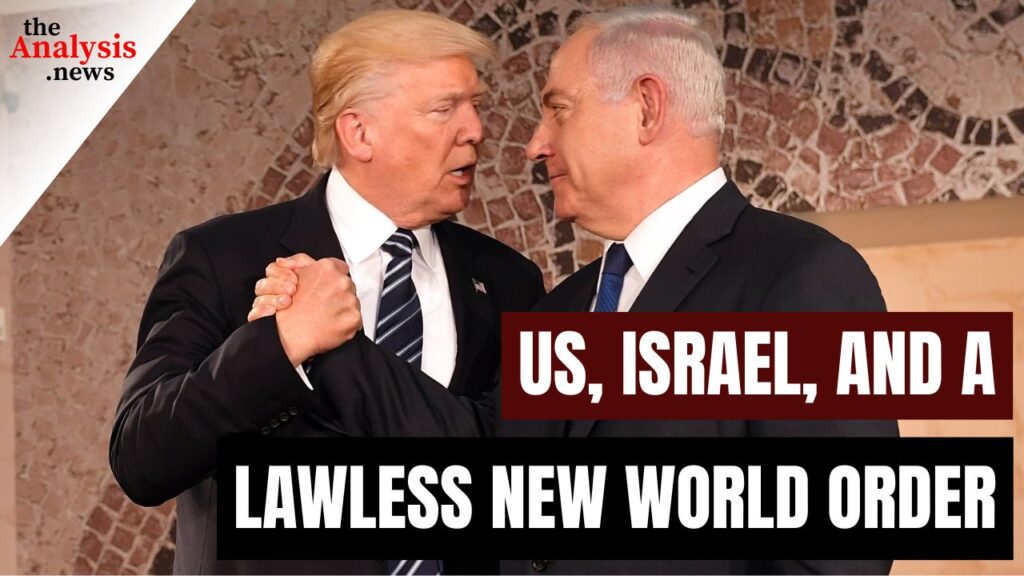
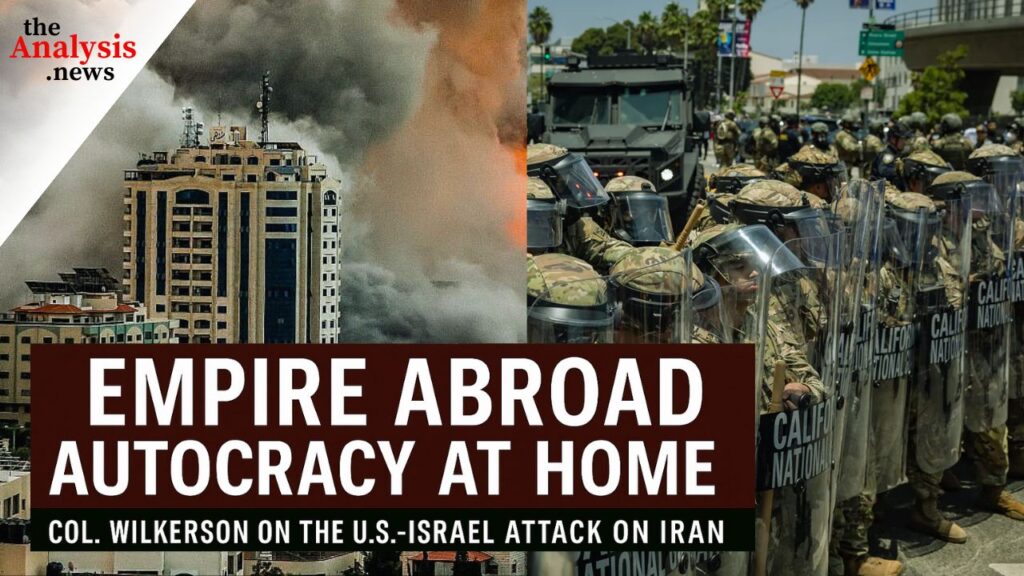
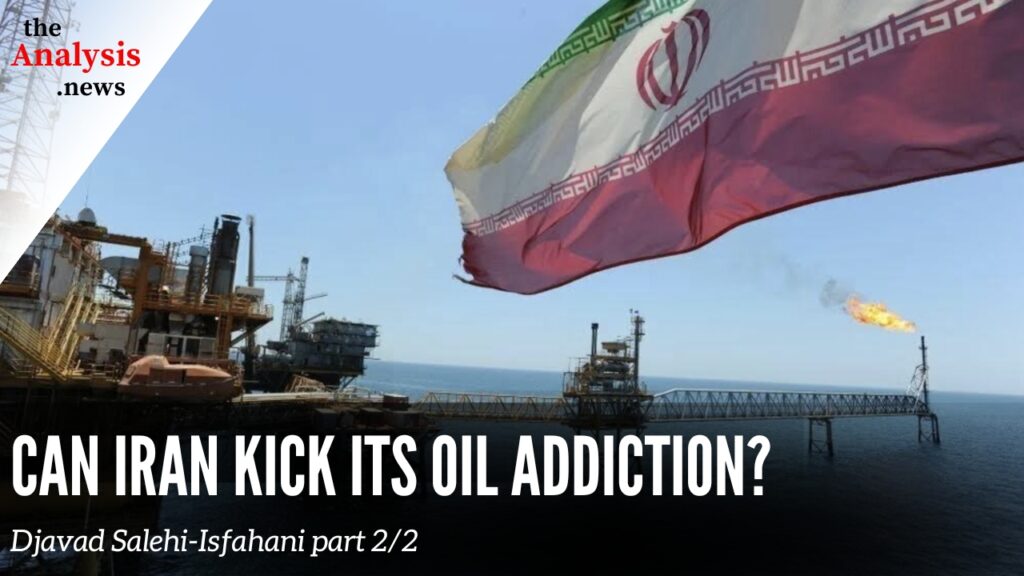
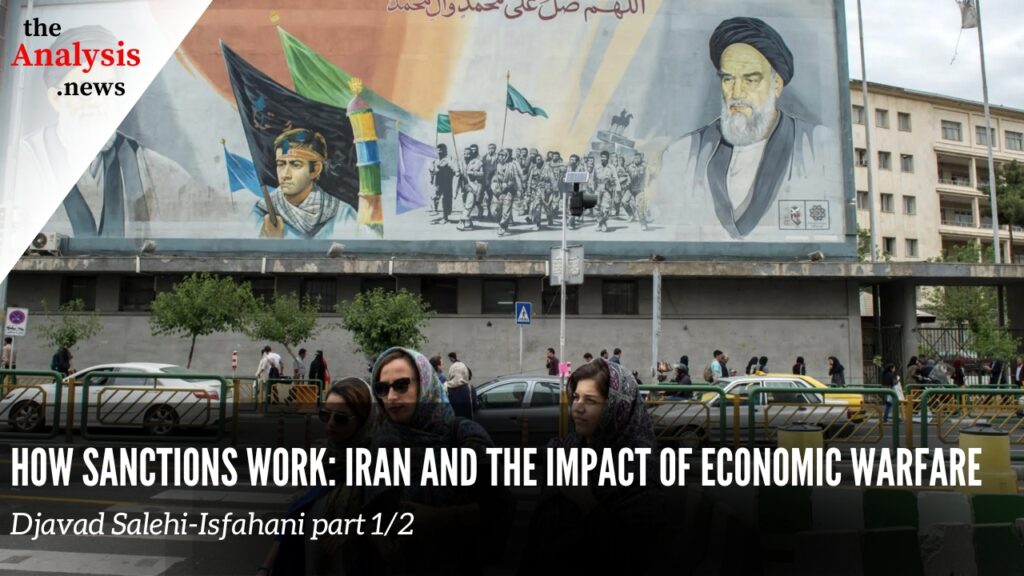
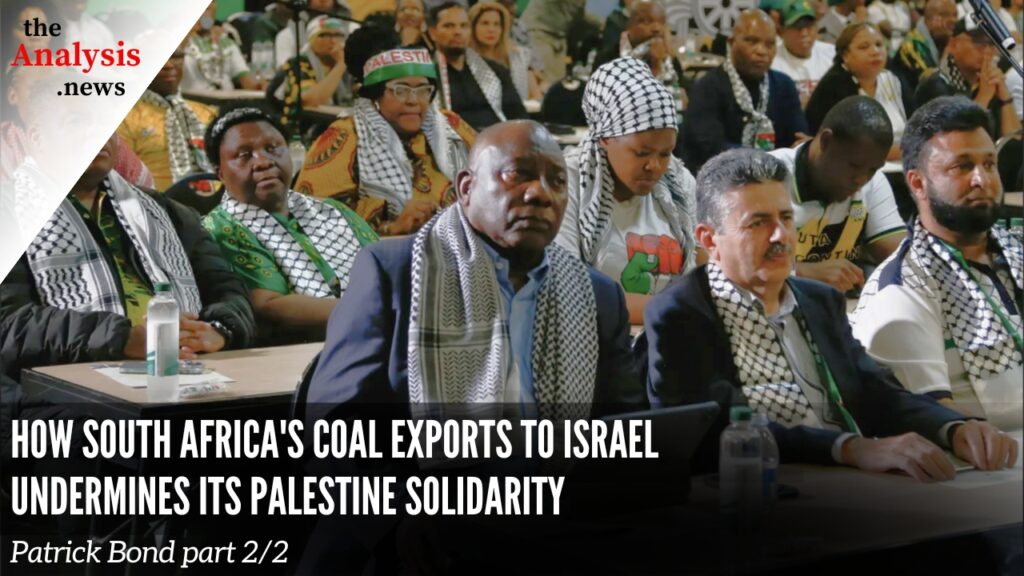
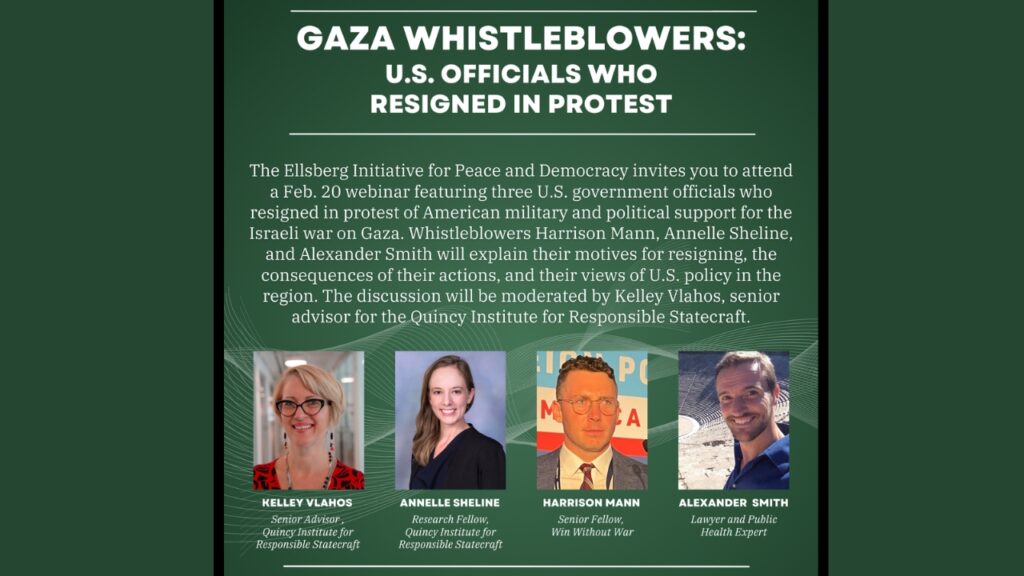







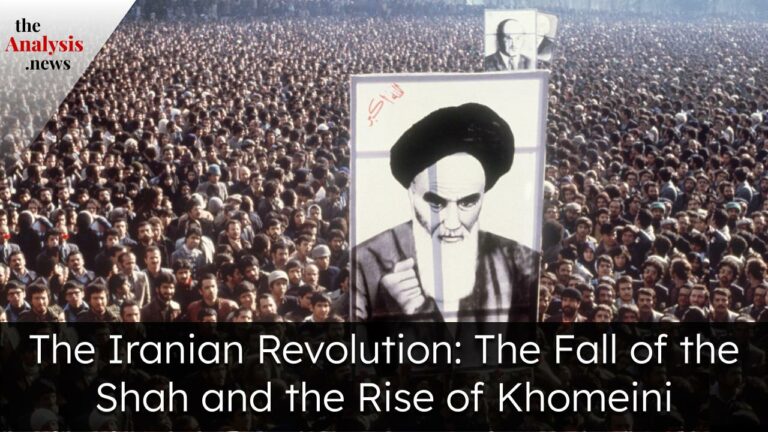
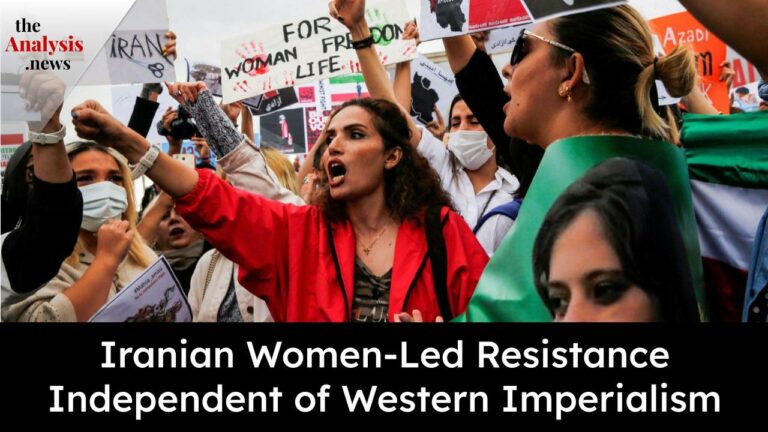

What is America thinking?
All these different channels and talking heads and I have no idea at all what America is doing.
One thought I have had recently is that this has to tie into the expansion of oil drilling and the
lack of action on global warming. How some Americans have characterized climate change
as a Chinese plot, for the reason that almost all American economic and military power, and
the many trillions of dollars of investment tied up in our military industrial complex all revolves
around oil? So, if anyone is motivated against taking action on climate change it is the US, and
the change is happening so fast it’s like our only reaction is to go crazy belligerant and try to
squeeze the value we have wasted by throwing money in the military in the context it requires,
war. To that end – we need to try to keep the oil industry going at full blast.
“The real destruction of what was, before 1990, the most successful country outside Israel in the Levant”
That’s true, but an understatement. Before the Iran-Iraq war, Iraq was quite arguably more successful than Israel. It had oil and a better educated population than Israel. Until the influx of Soviet Jews/Russians in the 80s, Israel had a smaller proportion of college graduates and advanced degree holders than Iraq. Had Saddam Hussein not been so warlike, Iraq could be a truly advanced, rich country by now. As rich as Israel and much bigger. That would have been the real threat to the bloodthirsty, insane militarists of the USA and Israel.
China and Russia have fully rehabilitated the Sunni Shia divide in the middle east, something the UK and US have been stoking for 75 years non stop so as to benefit certain partners with stakes in monetizing it. It’s a remarkable achievement completely missing from US MSM.